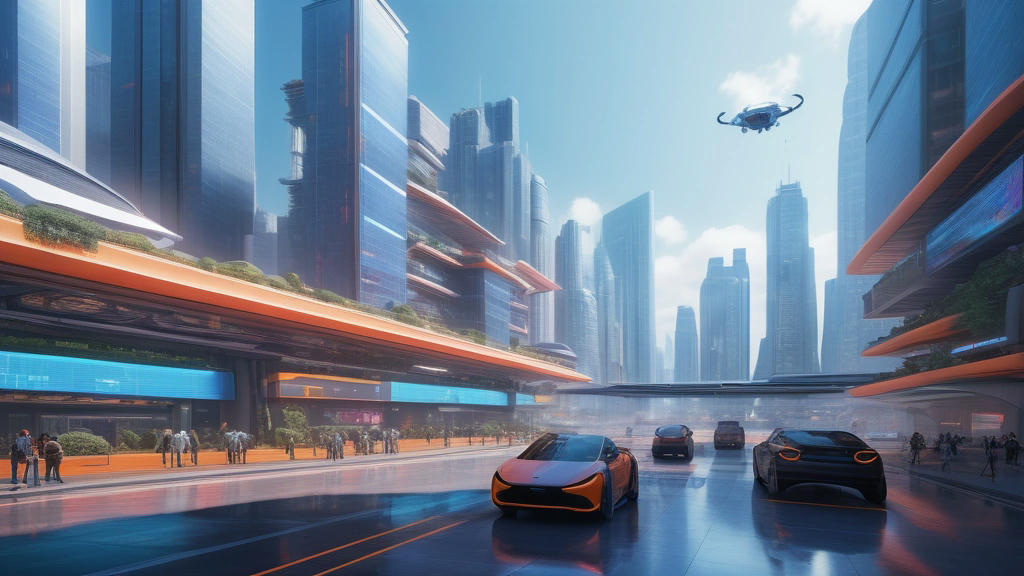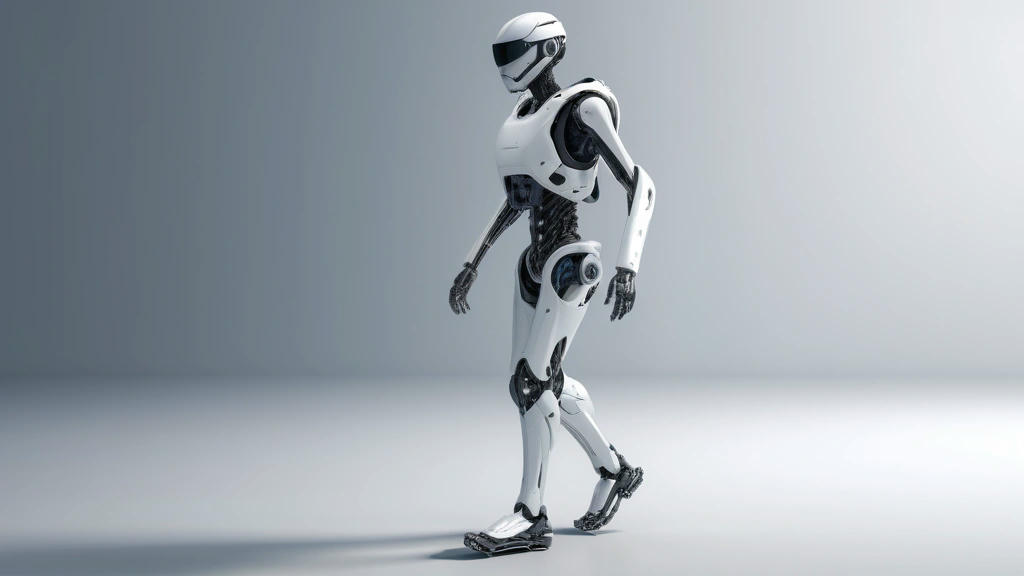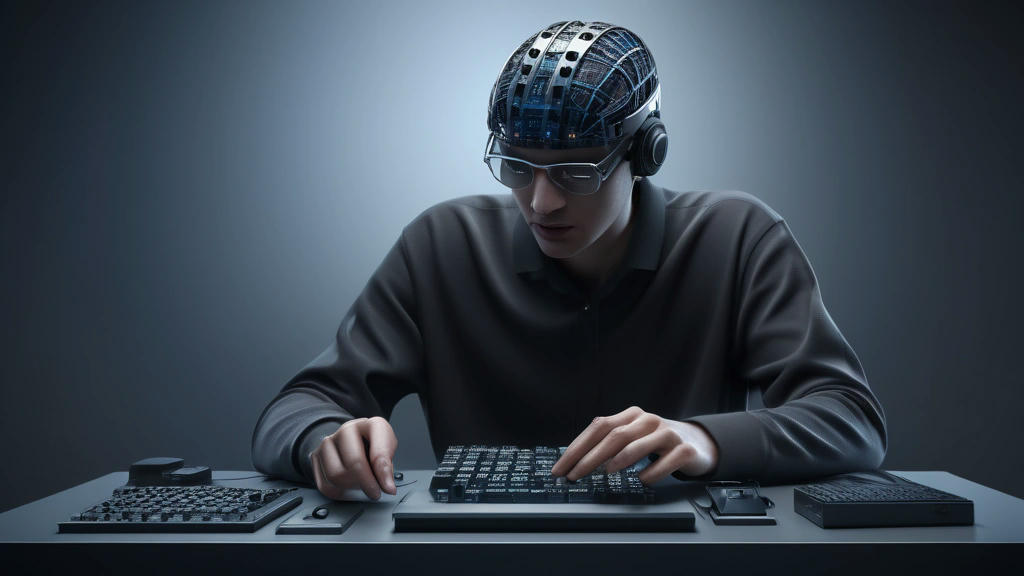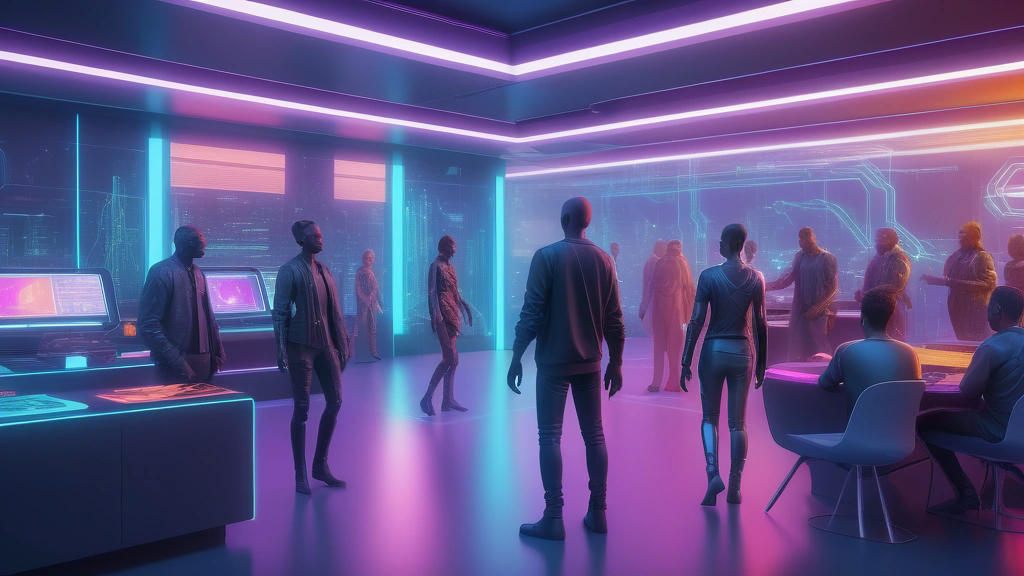In the not-so-distant future, the relationship between artificial intelligence (AI) and humans is poised to undergo a profound transformation. As AI continues to evolve, its integration into various aspects of human life will become increasingly seamless, raising questions about the nature of this symbiotic relationship. This article delves into the potential future of AI and its interaction with humans, exploring the promises, challenges, and ethical considerations that lie ahead.
The Dawn of a New Era
The rapid advancements in AI technology have already begun to reshape industries and societies. From healthcare to finance, AI systems are being deployed to enhance efficiency, accuracy, and decision-making. However, the future holds even more transformative possibilities. Imagine a world where AI not only assists but also collaborates with humans in ways that were once the realm of science fiction.
AI as a Collaborative Partner
One of the most exciting prospects of AI's future is its potential to become a true collaborative partner for humans. In the workplace, AI could take on repetitive and mundane tasks, allowing humans to focus on creative and strategic endeavors. This partnership could lead to unprecedented levels of productivity and innovation.
For instance, in the field of medicine, AI could analyze vast amounts of data to identify patterns and suggest treatment options, while doctors focus on patient care and complex decision-making. In creative industries, AI could assist artists and writers by generating ideas and providing inspiration, pushing the boundaries of human creativity.
Enhancing Human Capabilities
AI's ability to process and analyze data at lightning speed can augment human capabilities in remarkable ways. Consider the potential of AI-powered exoskeletons that enhance physical strength and endurance, enabling individuals with disabilities to regain mobility and independence. Similarly, AI-driven cognitive enhancements could help individuals process information more efficiently, leading to improved learning and problem-solving skills.
Ethical Considerations and Challenges
While the future of AI holds immense promise, it also presents significant ethical considerations and challenges. As AI systems become more integrated into daily life, questions about privacy, security, and bias become increasingly important. Ensuring that AI operates transparently and fairly is crucial to building trust between humans and machines.
One of the most pressing ethical concerns is the potential for AI to perpetuate and amplify existing biases. If AI systems are trained on biased data, they can inadvertently reinforce stereotypes and discrimination. Addressing this issue requires a concerted effort to develop unbiased algorithms and diverse training datasets.
The Human-AI Interface
The way humans interact with AI will also evolve, moving beyond traditional interfaces like keyboards and screens. Natural language processing and voice recognition technologies are already making it possible for humans to communicate with AI systems more intuitively. In the future, brain-computer interfaces (BCIs) could enable direct communication between the human brain and AI, opening up new possibilities for collaboration and control.
Imagine a world where individuals can control devices and access information simply by thinking. BCIs could revolutionize fields such as education, entertainment, and healthcare, providing new ways for humans to interact with technology and each other.
The Role of AI in Society
As AI becomes more integrated into society, its role will extend beyond individual interactions to influence broader social and economic structures. AI has the potential to address some of the world's most pressing challenges, from climate change to healthcare disparities. For example, AI-driven climate models can provide more accurate predictions and inform policy decisions, while AI-powered healthcare systems can improve access to care in underserved communities.
However, the widespread adoption of AI also raises concerns about job displacement and economic inequality. As AI takes on more tasks traditionally performed by humans, there is a risk of significant job losses in certain sectors. Addressing this challenge requires proactive measures, such as reskilling programs and policies that promote inclusive economic growth.
The Future of Human Identity
The integration of AI into human life also prompts questions about the future of human identity. As AI systems become more capable and autonomous, the line between human and machine may blur. This raises philosophical questions about what it means to be human and how we define consciousness and agency.
Some futurists envision a world where humans and AI merge, creating a new form of hybrid intelligence. This concept, known as the "singularity," suggests that humans could enhance their cognitive and physical abilities through AI integration, leading to a new era of human evolution. While this idea remains speculative, it underscores the profound impact AI could have on the future of humanity.
Building a Responsible AI Future
As we look to the future, it is essential to approach AI development and deployment with a sense of responsibility and foresight. Ensuring that AI benefits all of humanity requires collaboration between governments, industry, academia, and civil society. Establishing ethical guidelines, regulatory frameworks, and international standards will be crucial to navigating the complex landscape of AI.
Moreover, fostering a culture of transparency and accountability in AI development can help build public trust and ensure that AI systems are used for the greater good. By prioritizing ethical considerations and addressing potential risks, we can harness the power of AI to create a more equitable and prosperous future.
Conclusion
The future of AI and its interaction with humans is a journey into uncharted territory, filled with both promise and challenges. As AI continues to evolve, it has the potential to transform every aspect of human life, from work and healthcare to education and entertainment. By embracing AI as a collaborative partner and addressing ethical considerations, we can unlock new possibilities and create a future where humans and machines coexist harmoniously.
The path ahead requires careful navigation, but with thoughtful planning and a commitment to ethical principles, we can shape a future where AI enhances human capabilities and contributes to a better world for all.



